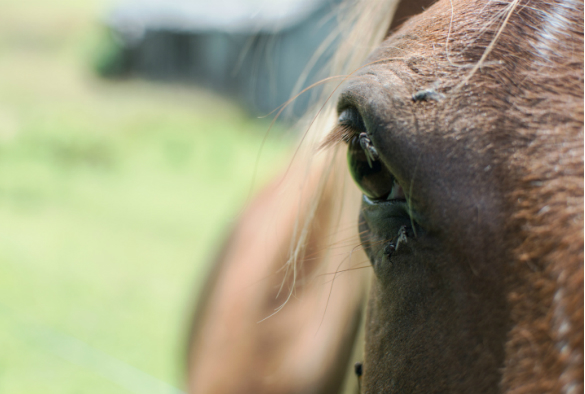Equine grass sickness vaccine trial proves inconclusive

A unique nationwide field trial for a vaccine for the prevention of equine grass sickness (EGS) has led to a greater understanding of the illness, despite its effectiveness proving inconclusive.
The trial was coordinated by the Animal Health Trust, in collaboration with the veterinary schools of the Universities of Liverpool, Edinburgh and Surrey, with some logistical and other support provided by EGS-dedicated charity, the Moredun Foundation Equine Grass Sickness Fund.
Grass sickness is an often fatal condition that typically occurs in grazing horses. The cause remains unknown, but the toxin produced from the bacterium Clostridium botulinum type C may be involved.
The trial involved over 1,000 horses and ponies residing on 120 premises across the UK which had been previously affected by a high incidence of EGS cases. The trial aimed to determine the effectiveness of a C. botulinum type C vaccination in preventing EGS, by comparing incidence between groups of vaccinated and placebo-treated horses and ponies.
The results of the field trial found both the C. botulinum type C vaccine and placebo injections were shown to be safe, with a low frequency of local injection site reactions being reported during the trial.
However, the overall incidence of EGS during the four-year field trial was considerably lower than anticipated, with just nine confirmed cases occurring amongst the enrolled horses and ponies over the entire trial period. Compared to the placebo-treated group, the risk of EGS was not significantly reduced in the vaccine group. Meaning that, unfortunately, the trial failed to provide evidence of an effect of vaccination in the prevention of EGS.
Dr Jo Ireland from the University of Liverpool said; “We are so grateful to all the veterinary practices, horse owners and supporters who helped make this research possible. The significant amount of data that has been collated during this nationwide field trial will be a very valuable resource for subsequent research studies to benefit future generations of horses and ponies.”
Dr Richard Newton at the Animal Health Trust commented: “Although the EGS field trial did not demonstrate a significant protective effect of the C. botulinum type C vaccine against EGS, this truly unique research has still achieved a number of things. We now have a greater understanding of equine grass sickness and the trial provided further evidence of vaccine safety under conditions of field use.”
Read the full report on the Animal Health Trust website here.